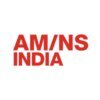Filter interviews by
Jindal Steel and Power RO and DM Plant Operator Interview Questions and Answers
Jindal Steel and Power RO and DM Plant Operator Interview Experiences
1 interview found
I applied via Recruitment Consulltant and was interviewed in Oct 2024. There was 1 interview round.
(5 Questions)
- Q1. WTP MECHANICAL dipartment
- Q2. Mechanical engineer
- Q3. Mechanical department
- Q4. Mechanical mentens
- Q5. DMPLANT operation
Interview Preparation Tips
Interview questions from similar companies

I applied via AmbitionBox and was interviewed before Dec 2021. There were 2 interview rounds.

(2 Questions)
- Q1. What are your Strength & Weakness.
- Ans. My Handwork is my strength and Food is my weakness.
- Q2. Why do you want to join this company
Interview Preparation Tips

Interview Questionnaire
4 Questions
- Q1. Detail ,in-depth question about core field.
- Q2. In-depth analysis of your job profile
- Q3. Detail analysis of your HR skill
- Ans.
Strong HR skills including recruitment, employee relations, training and development, and performance management.
Experience in full-cycle recruitment process, including sourcing, interviewing, and onboarding new employees.
Proven ability to handle employee relations issues effectively and confidentially.
Skilled in designing and implementing training programs to enhance employee skills and performance.
Proficient in condu...
- Q4. In-depth analysis of your behaviour under various situation

I applied via Company Website and was interviewed before Nov 2018. There were 5 interview rounds.
Interview Questionnaire
2 Questions
- Q1. Interviewer asked questions based on resume contents
- Q2. Just honest reply
Interview Preparation Tips

I applied via Company Website and was interviewed in Jul 2018. There were 5 interview rounds.
Interview Questionnaire
2 Questions
- Q1. One important incident in your carrier where you think you have contributed effectively in your organization
- Ans.
Implemented a new customer feedback system resulting in increased customer satisfaction and retention rates.
Identified the need for a more efficient feedback system
Researched and implemented a new software to collect and analyze customer feedback
Analyzed the data to identify trends and areas for improvement
Implemented changes based on feedback leading to improved customer satisfaction and retention rates
- Q2. What extra zeal you have that You can be hired
- Ans.
I have a strong passion for leadership and a proven track record of motivating teams to achieve success.
Proven track record of successfully leading teams in previous roles
Passionate about developing and mentoring team members
Strong communication and interpersonal skills
Ability to problem-solve and make quick decisions under pressure
Interview Preparation Tips
Experience: Reasoning, English and core subject
Round: Test
Experience: Psychometric
General Tips: Be just yourself, don't lie an inch neither exxagerate things. Coj interviewer understands very quickly your caliber and vague things.
Skills: Communication, Body Language, Analytical Skills
Duration: >3 Months

I applied via Recruitment Consultant and was interviewed in May 2019. There were 3 interview rounds.
Interview Questionnaire
2 Questions
- Q1. Most important question-What have you done in previous organization and what's your roles?
- Q2. Tell me something about yourself? And All questions related to your resume (data written there)
Interview Preparation Tips
Any big issues which you have resolved during your career.

I applied via Referral and was interviewed before Mar 2021. There was 1 interview round.
(1 Question)
- Q1. Basic Electrical questions
Interview Preparation Tips

I applied via Campus Placement and was interviewed before Jan 2021. There were 5 interview rounds.
Interview Questionnaire
1 Question
- Q1. About insulation class of motors, working principle of induction motor
Interview Preparation Tips

I appeared for an interview before Mar 2024.
(2 Questions)
- Q1. What was the PH value for caster primary water
- Q2. Different reason for breakout in casters
- Ans.
Breakouts in casters can occur due to various factors affecting performance and functionality.
Wear and tear: Over time, casters can degrade, leading to performance issues.
Improper load capacity: Using casters beyond their rated load can cause failure.
Environmental factors: Exposure to moisture or chemicals can corrode materials.
Incorrect installation: Misalignment can lead to uneven wear and malfunction.
Obstructions: D...
(2 Questions)
- Q1. Why you want to leave your job.
- Ans.
I'm seeking new challenges and opportunities for growth that align with my career aspirations and personal development goals.
Desire for professional growth: I feel that I've reached a plateau in my current role and am eager to take on more responsibilities.
Seeking a better cultural fit: My current workplace has a different set of values than I hold, and I believe a new environment would be more conducive to my producti...
- Q2. Where are you looking yourself working with after 5 years
- Ans.
In five years, I envision myself as a key leader, driving strategic initiatives and fostering team growth in a dynamic organization.
I aim to take on more leadership responsibilities, possibly as a department head or project manager.
I want to enhance my skills through continuous learning, such as obtaining relevant certifications or attending workshops.
I hope to contribute to innovative projects that align with the comp...

I applied via Approached by Company and was interviewed in Jun 2024. There were 3 interview rounds.
(1 Question)
- Q1. Are you a qualified ca or not?
General questions related to job profile
(1 Question)
- Q1. Question related to direct tax amendments
Jindal Steel and Power Interview FAQs
Tell us how to improve this page.
Jindal Steel and Power Interviews By Designations
- Jindal Steel and Power Assistant Manager Interview Questions
- Jindal Steel and Power Junior Engineer Interview Questions
- Jindal Steel and Power Graduate Engineer Trainee (Get) Interview Questions
- Jindal Steel and Power Deputy Manager Interview Questions
- Jindal Steel and Power Electrical Engineer Interview Questions
- Jindal Steel and Power Electrician Interview Questions
- Jindal Steel and Power Production Engineer Interview Questions
- Jindal Steel and Power Summer Intern Interview Questions
- Show more
Interview Questions for Popular Designations
- RO Plant Operator Interview Questions
- Plant Operator Interview Questions
- Operator Interview Questions
- Data Entry Operator Interview Questions
- Computer Operator Interview Questions
- Batching Plant Operator Interview Questions
- Machine Operator Interview Questions
- Water Treatment Plant Operator Interview Questions
- Show more
Jindal Steel and Power RO and DM Plant Operator Interview Process
based on 2 interviews
Interview experience
Interview Questions from Similar Companies
Fast track your campus placements
|
Assistant Manager
2.3k
salaries
| ₹4.4 L/yr - ₹13.6 L/yr |
|
Junior Engineer
1k
salaries
| ₹1.8 L/yr - ₹5.6 L/yr |
|
Deputy Manager
979
salaries
| ₹5.7 L/yr - ₹18.4 L/yr |
|
Assistant Engineer
816
salaries
| ₹2.4 L/yr - ₹8.5 L/yr |
|
Manager
626
salaries
| ₹9 L/yr - ₹24.2 L/yr |

Tata Steel

JSW Steel

ArcelorMittal Nippon Steel

Jindal Stainless
- Home >
- Interviews >
- Jindal Steel and Power Interview Questions >
- Jindal Steel and Power RO and DM Plant Operator Interview Questions

















